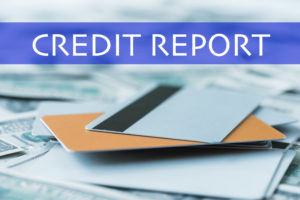Debt Collection Harassment Attorney
Accepting Cases in Morgantown, Wheeling, Martinsburg & Nearby West Virginia
If you’ve fallen behind on your credit card bills, student loan payments or other financial obligations, you may have been contacted by a debt collector trying to recover the money you owe. Although a debt collector has the right to contact you about the outstanding debts, the law requires that it is done fairly.
You don’t have to tolerate harassment by creditors. You have rights, and a debt collection attorney can help. I have decades of experience and knowledge, protecting clients from unfair debt collection and I fight aggressively to get you the results you need.
If you are being harassed by an abusive or deceptive debt collector, contact Mehalic Law, PLLC or call 304-346-3462 to discuss your case. I help clients from Morgantown, Wheeling, Martinsburg and throughout West Virginia.
Request a Free Consultation
Learn More About Unlawful Debt Collection Practices
- What is Debt Collection Harassment?
- How Can a Debt Collection Attorney Help?
- The Fair Debt Collection Practices Act (FDCPA)
- How Do Debt Collectors Violate FDCPA and Other Laws?
- The West Virginia Consumer Credit and Protection Act (WVCCAP)
- How Can I Stop Debt Collectors from Harassing Me?
- Why Choose Mehalic Law?
- Schedule Your Complimentary Initial Consultation Today

What is Debt Collection Harassment
Debt collection harassment is an umbrella term that describes a broad range of unlawful tactics used by debt collectors to get you to pay. These activities often violate state and federal laws by making illegal threats or attempting to collect more than they are owed by way of fraudulent fees or “interest.” In many cases, the original debt has been sold to a third party debt buyer, a company that buys old, written-off debts and tries to collect for whatever they can get.
How Can a Debt Collection Attorney Help?
If you are the victim of an abusive, deceptive or harassing collection agency, I may be able to help by:
- Stopping the debt collector harassment
- Obtaining up to $1,000 in monetary compensation in addition to actual damages
- Reduce or eliminate your outstanding debt
- Clear negative information from your credit reports
- Have the debt collector pay your attorney’s fees
- Negotiate for better terms or correct a mistake (fraud by overreach)
- Help you gain peace of mind and reclaim your life
I know it’s frightening to be harassed by abusive debt collectors. I am committed to helping you stop the harassment and get back on track. However, it’s important for you to act quickly. The longer you wait, the more difficult it may be to resolve your case.
The first step to freeing yourself from collection agency harassment is a free initial consultation with me, attorney Jeff Mehalic. We will discuss the details of your case and assess the facts surrounding your harassment, evaluating the merits of your case.
Honesty is the cornerstone of our firm. If I don’t think you have a strong case, I’ll tell you right away. However, I do believe you are the victim of debt collection harassment, I’ll explain your rights, detail the next steps. I will personally handle each aspect of your case until the situation is resolved.
The Fair Debt Collection Practices Act (FDCPA)
In 1978, the federal government passed the Fair Debt Collection Practices Act (FDCPA) to give legal protection to debtors from unfair, deceptive and abusive debt collection practices. Although it primarily applies to third-party collection agencies, the scope of the law is comprehensive and carries enforceable penalties for all debt collectors if violated. Generally speaking, the FDCPA:
- Promotes fair debt collection
- Eliminates abusive and deceptive practices
- Defines the rights of consumers involved with debt collectors
- Creates guidelines under which debt collectors may conduct business
- Provides a way for consumers to obtain validation of their debt information to either ensure or dispute its accuracy
- Establishes remedies and penalties when debt collectors violate the law
This is a broad overview of the FDCPA, and by no means a comprehensive list of the protections covered under the law. As an experienced debt collection harassment attorney, I am intimate with the FDCPA and your consumer rights. I will take the time to understand your situation and determine the merits of your case.
How Do Debt Collectors Violate FDCPA and Other Laws?
Most of us will have to deal with a loan or line of credit at some point in our lives. If we falter on paying these loans back, we may be contacted by debt collectors. Unfortunately, creditor harassment is becoming fart too common throughout West Virginia and the rest of the country. Even though state and federal laws prohibit many of the unscrupulous tactics used by debt collectors, unlawful activities still occur every day.
Like many people who have debts, you may want to pay back what you owe in a way that the collection agency doesn’t want. This may mean smaller, or even late, payments. Collectors are required to inform you of the debt agreement and any potential penalties in a civil and regulated manner. However, many debt collectors choose to use intimidation, threats and other abusive methods in an attempt to force you to pay.
Under the Fair Debt Collection Practices Act, it is illegal for debt collectors to:
- Harass you, lie to you, intimidate you or use obscenities
- Try to collect more debt than the amount you actually owe
- Harass you via social media sites
- Threaten to garnish wages
- Threaten you with lawsuits, arrests or violence
Debt collectors can be liable for up to $1,000 plus any actual damages that you have incurred as a result of their conduct. They can also be required to pay your legal fees and court costs.
In addition to protections under the FDCPA, there are a number of consumer protections included in the Telephone Consumer Protection Act (TCPA). Under the TCPA, debt collectors may not:
- Call your friends
- Call anonymously or use a false name
- Call you at work
- Call you after 9pm or before 8am
- Use an automated dialing system
The West Virginia Consumer Credit and Protection Act (WVCCPA)
In addition to the protections contained in the FDCPA, West Virginia also has laws governing the actions of debt collectors, known as the West Virginia Consumer Credit and Protection Act (WVCCPA). Similar to the unlawful activities identified in the FDCPA, the WVCCPA prohibits debt collectors from:
- Using unfair tactics to collect a debt
- Using violence, or the threat of violence, to collect a debt
- Using misleading, deceptive or fraudulent methods to collect a debt, such as misrepresenting the amount of the debt owed or using a false business name
- Making repeated or continuous calls intended to annoy

The WVCCPA empowers you to hold the debt collector responsible for paying your attorney fees and court costs as well as seeing statutory damages. Additionally, the debt collector may face criminal charges if there was a willful violation of the WVCCPA provisions.
How Can I Stop Debt Collectors from Harassing Me?
The debt collection industry has gotten more aggressive in recent years. With the rise of debt buyers who purchase old debt from credit card companies and other entities, you may receive collection attempts that are not legally collectable, or worse, not even yours.
The Federal Trade Commission (FTC) recommends that if you are contacted by debt collectors, try talking to them at least once to find out if you can resolve the matter. If, after discussing your situation, you continue to receive harassing collection calls, consider taking the following steps:
Tell the debt collector to stop calling
Telling the collection agency to stop calling won’t erase your debt, but it can get the harassing conduct to stop. In addition to telling the debt collector to stop calling over the phone, you can follow up with a written demand letter. The demand letter should be sent via certified mail and request a mail return receipt to prove they received it.
Document all calls you receive after you’ve told the collector to stop
This includes missed calls. Many calls are made by an automated dialer and may call several times a day; track all of these by date and time. Auto-dialed calls to a mobile phone are not legal under the federal Telephone Consumer Protection Act (TCPA). Also note any abuse or misrepresentation by the caller – these actions are also illegal. Save the record of these calls on your phone and do not delete any voicemails.
Contact Mehalic Law right away
As a debt collection harassment attorney, I can negotiate terms on your behalf and defend your rights against illegal practices by the debt collector. Violations of your do-not-call request can result in fines for every call. Even if you have a legitimate debt, the debt buyer must still comply with the law. You may only ow $300 on your debt, but the collector may owe you $10,000 because of repeated illegal conduct.
Why Choose Mahalic Law
Debt collection harassment cases can be very complex and evidence-driven. You need an experienced attorney with proven skill, tenacity and a meticulous eye for detail. For more than 30 years, I have vigorously defended the rights of clients who have suffered as a result of others’ wrongdoing. If you have been the victim of abusive or deceptive collection practices, I will investigate the facts surrounding your claim and build your strongest, most compelling case.
I know how frustrating and stressful this can be for you and your family. When you choose Mehalic Law, you will never be handed off to an assistant or paralegal. I personally handle every aspect of your case, from the free initial consultations to its conclusion.
Schedule Your Complimentary Initial Consultation Today
If you live in Morgantown, Wheeling, Martinsburg or other area in West Virginia and want to learn how Mehalic Law PLLC can help you stop harassing calls and get back on track, call 304-346-3462 today to schedule a free consultation.